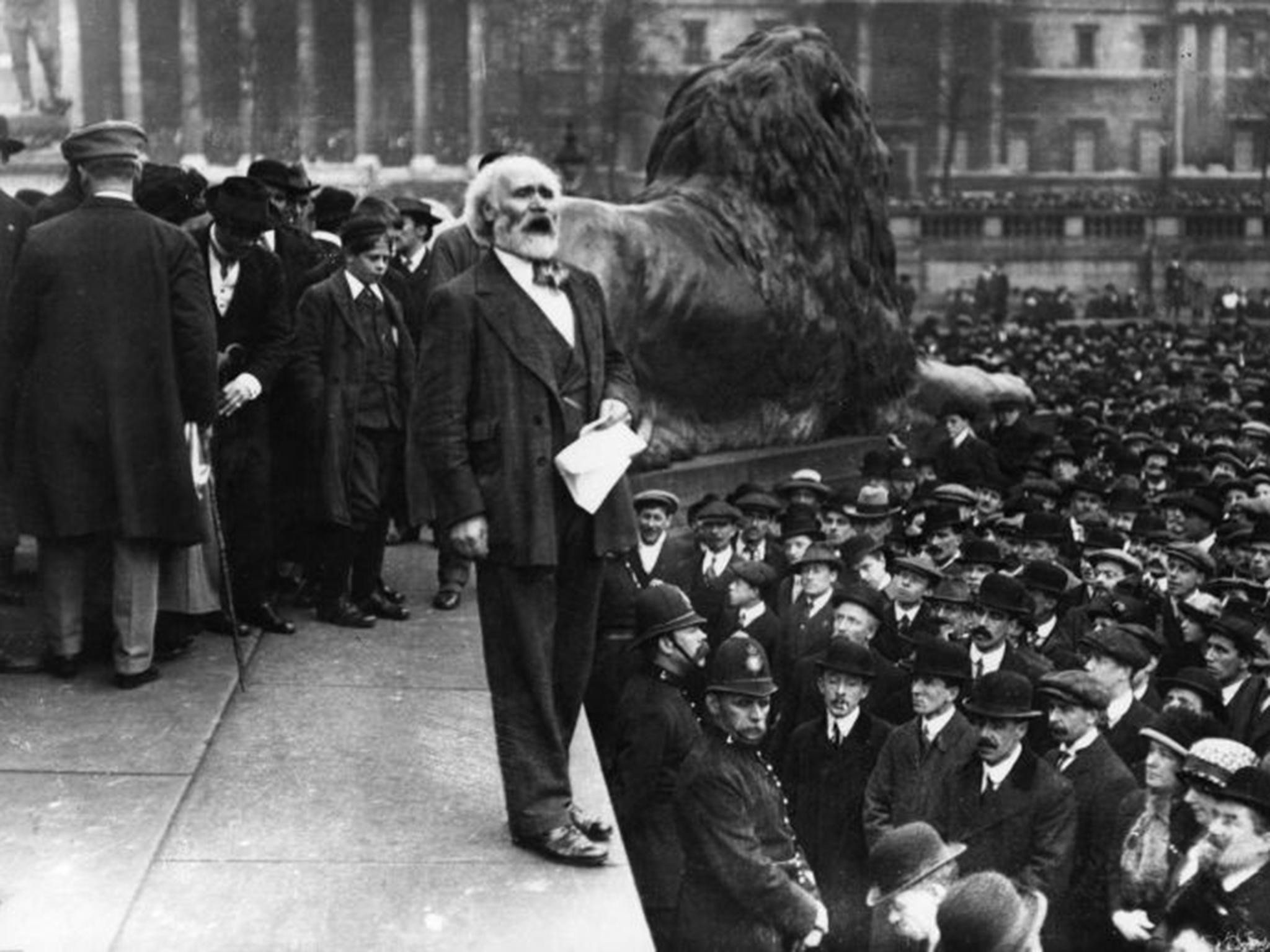Men, if you want an example of how you can dismantle the patriarchy, look to Keir Hardie
For feminism to succeed, we need men on board. First, because they wield most of the formal power; second, because they are half the population – they are part of us; but, most importantly, because dismantling the patriarchy is good for men too


“It is only by removing the disabilities and restraints imposed upon woman; and permitting her to enter freely into competition with man in every sphere of human activity, that her true position and function in the economy of life will ultimately be settled.”
This is what Keir Hardie said in his 1905 speech “The Citizenship of Women: A Plea for Women’s Suffrage”. Hardie was the first working-class man to be elected to Parliament, on a manifesto that said: “I ask you therefore to return to Parliament a man of yourselves, who, being poor can feel for the poor.” He became the first leader of the Labour Party.
Hardie was a faithful and key ally of the suffragette movement, and his support jeopardised his own standing in his party and beyond. His frustration with his fellow men shines through in his speech: “To those who are opposed on principle to women having the vote at all I have little to say. These I find it easier to pity than to reason with.”
Hardie’s main male feminist ally was George Lansbury MP, who was horrified by the force-feeding of suffragettes, exclaiming at Prime Minister Herbert Asquith in one parliamentary encounter: “You will go down in history as the man who tortured innocent women! It is perfectly disgusting!” Because of this outburst, Lansbury was ushered out of the chamber “amid a cheer of relief” from other MPs.
Since 1918, much has changed in the social, economic and political position of women. Yet we still need a further 117 women in the House of Commons to even the balance, and in most institutions of power women are still a minority. Men still earn nearly 10 per cent more for those in full-time work and the figure is almost twice as bad for those in part-time work. Sexual harassment and abuse are rife in public spaces, at work, and even in the home, where one in four women face domestic violence in their lifetime.
Particularly worrying, over the past 10 years the UK has made absolutely zero progress in tackling gender equality across health, income and education, according to the EU’s Gender Equality Index.
One hundred years from the landmark act of 1918, there is still a lot of work to do. As before, women need to lead the charge in a transformation of society and its institutions. And to be of any worth the movement needs to span across race, age, class, ability, sexuality and nationality. It is crucial that we are intersectional in our approach.
But in order to bring feminist values to the forefront, we need men on board. First, because they wield most of the formal power; second, because they are half the population – they are part of us; but most importantly because dismantling the patriarchy is good for men too: it challenges entrenched roles that are just as damaging to them.
The social norms that dictate our place in society – that women should “be nice” and “smile” and always put the comfort of a man before our own safety – are the very same norms that tell men to “man up” rather than talk about how they feel. The very same norms that create barriers to girls excelling in science and sneer at boys who aren’t obsessed with sport. They are the very same mores that have led to a crisis of masculinity in this country and across the world – from the UK, where the male suicide rate is three times that of women, to the US, where 98 per cent of mass shootings are carried out by men.
We know that gender roles are restrictive for everybody and costly to society. Yet getting more male influencers – the modern-day Keir Hardies – marching alongside us isn’t always easy, despite the fact that men and boys are out there doing just that.
Unfortunately, Keir Hardie didn’t live to see the Representation of the People’s Act of 1918 or the granting of equal voting rights in 1928. But his commitment to women’s suffrage, and the role of supportive men in championing women’s rights, lives on – and gathers pace.
Helen Pankhurst is an international development and women’s rights activist, the great-granddaughter of Emmeline Pankhurst and granddaughter of Sylvia Pankhurst
Join CARE International’s #March4Women on Sunday 4 March, starting at Millbank at noon. Funds raised will support CARE’s “Help Her Live Learn and Earn” campaign to help women and girls in the world’s poorest communities work their way out of poverty. All donations to this campaign until 22 April 2018 will be matched pound for pound by the UK Government.


Join our commenting forum
Join thought-provoking conversations, follow other Independent readers and see their replies
Comments